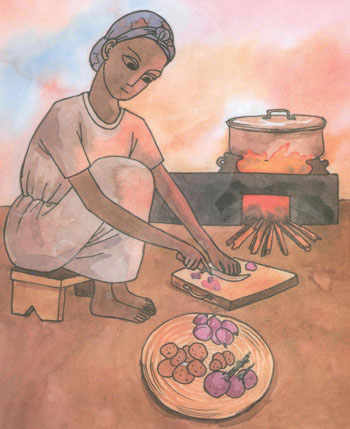
Food protection methods are measures taken to protect food from being contaminated by any agent. All food must be protected at all times during storage and preparation from the following contaminants:
These factors either affect the food directly to make it unsafe (such as cigarette smoke or soot), or, like coughs and sneezes or insects, contaminate the food with microorganisms.
The most important way of preventing contamination is by adopting good food handlers' hygiene. This is the term for a group of practices that should be followed at all times by anyone handling food at any stage of the food supply process. Food handlers' hygiene in retail and commercial premises where food and drink is sold to customers is of critical importance and this is discussed further in Study Session 11.
The same principles also apply in domestic situations. The importance of promoting good food handlers' hygiene is:
Anyone handling food should avoid bad habits such as scratching, touching the hair, nose or mouth, having unclean hair, unclean and long fingernails, smoking, and coughing or sneezing in food handling and preparation areas. They should always wash their hands before starting to prepare food, and after every interruption, particularly after using the toilet. People who have skin infections, diarrhoea or sore throats should avoid handling food.
There are other general principles for preventing food contamination:
